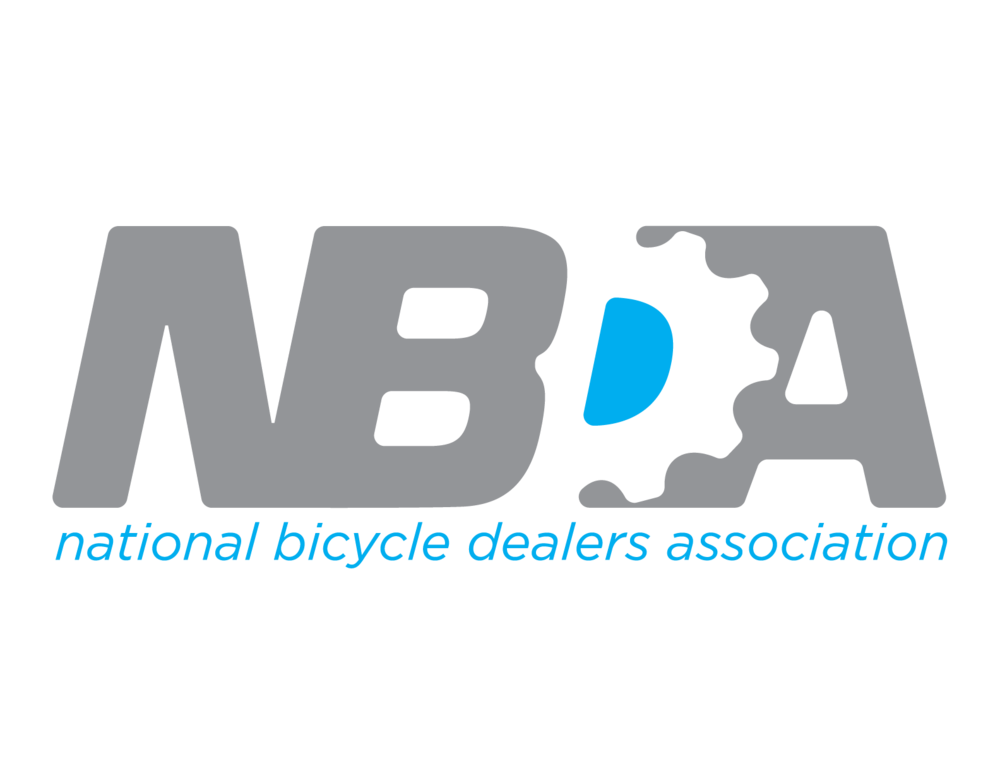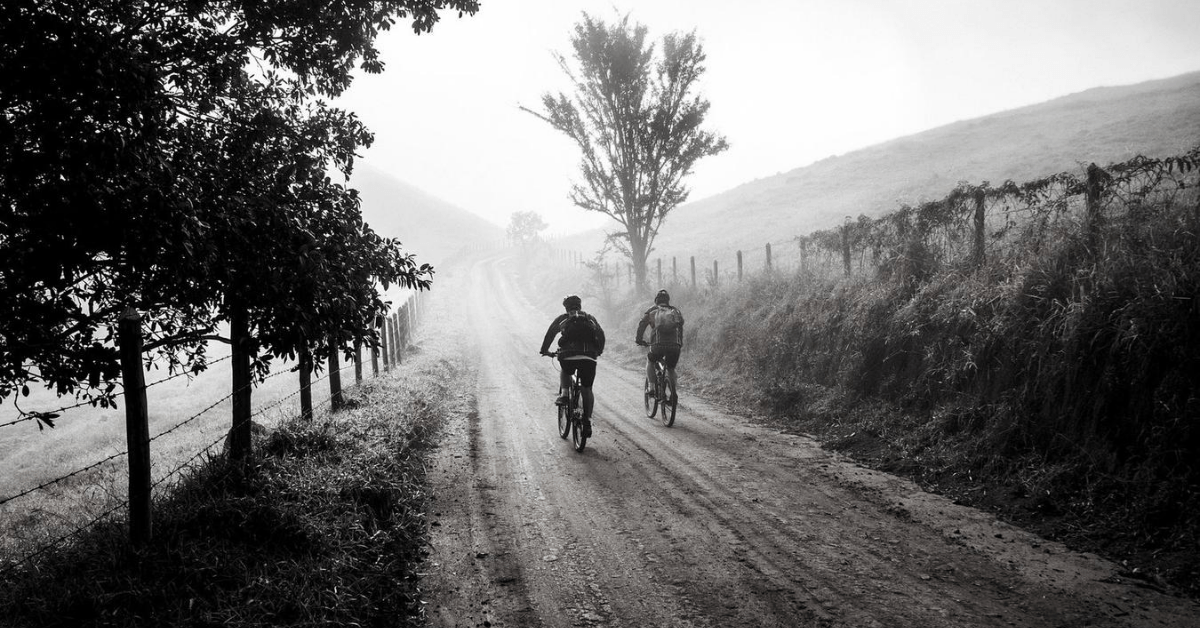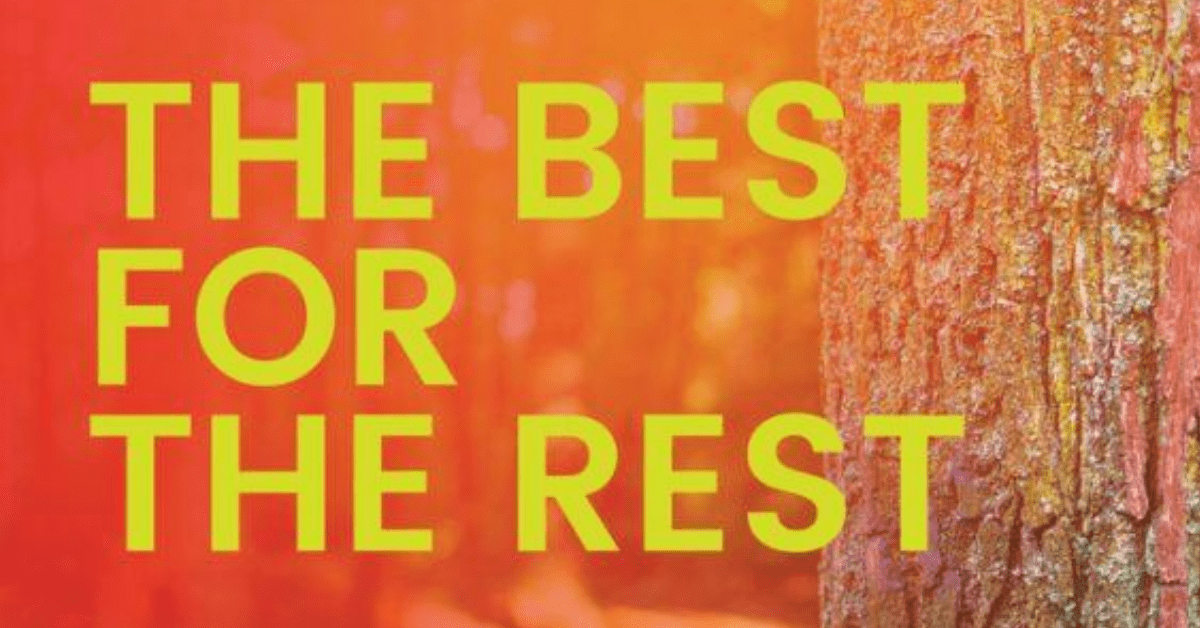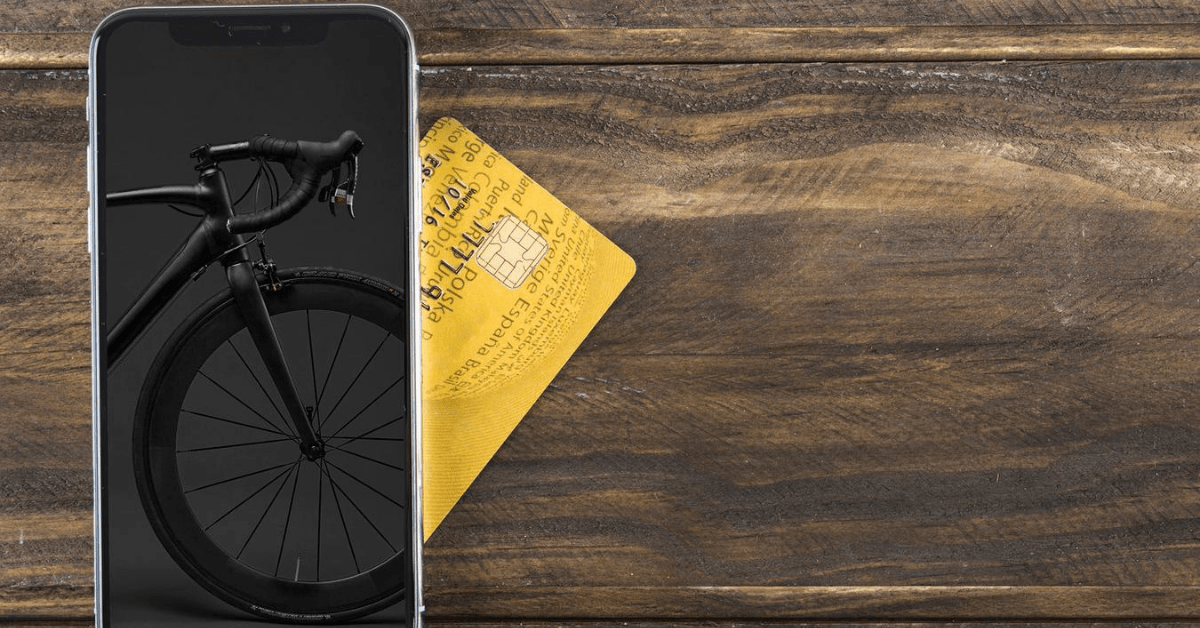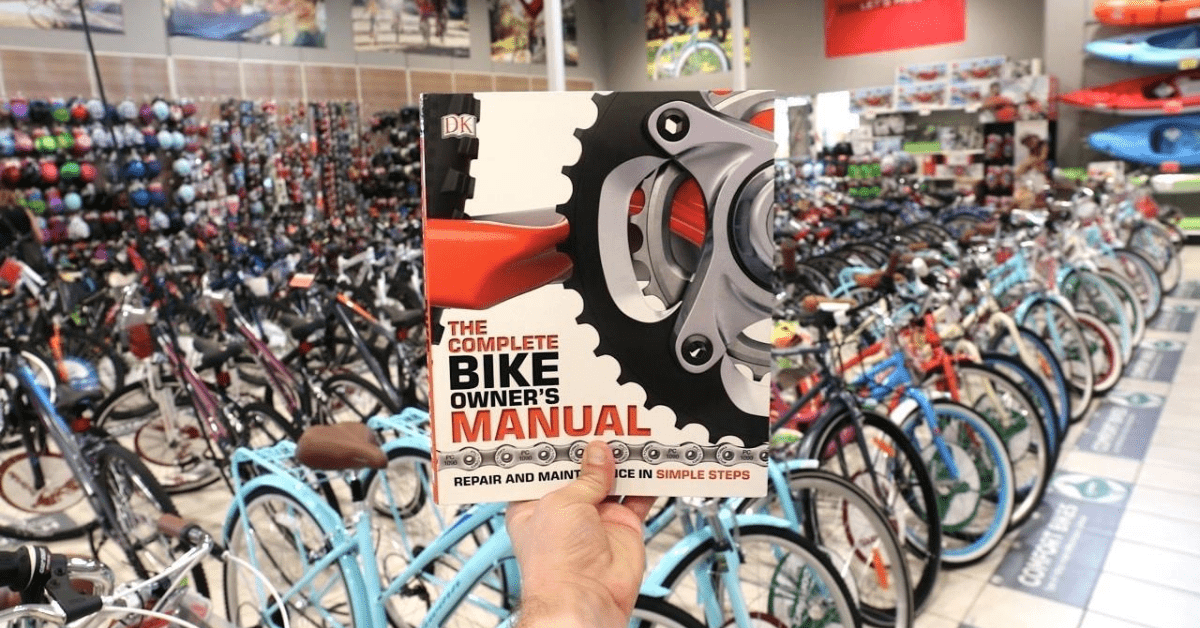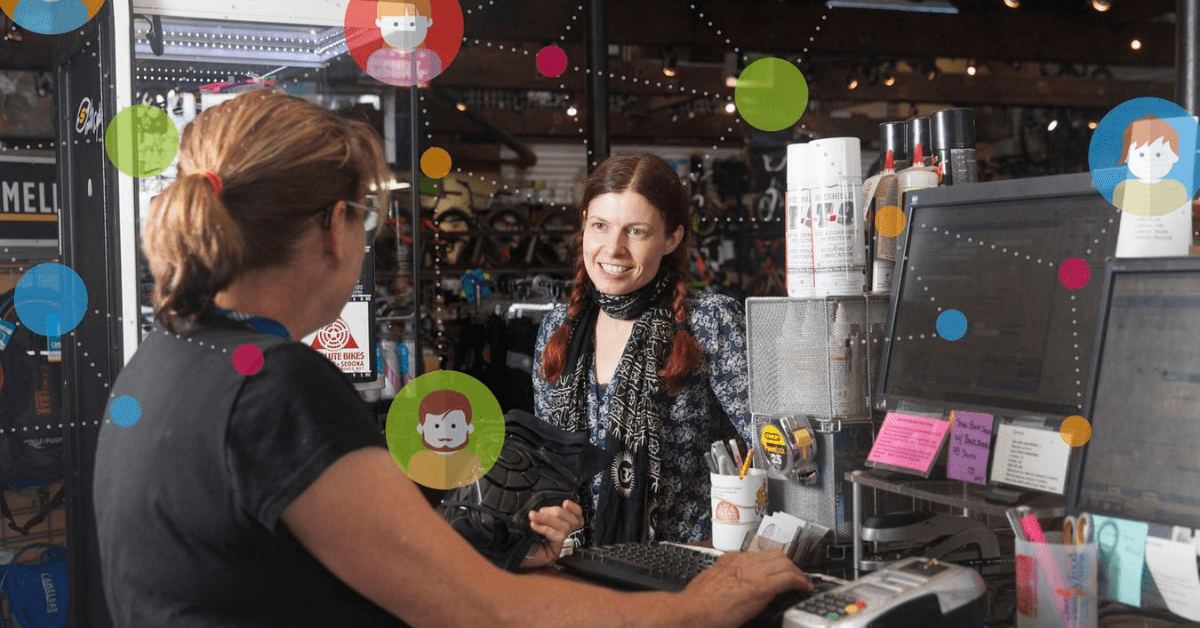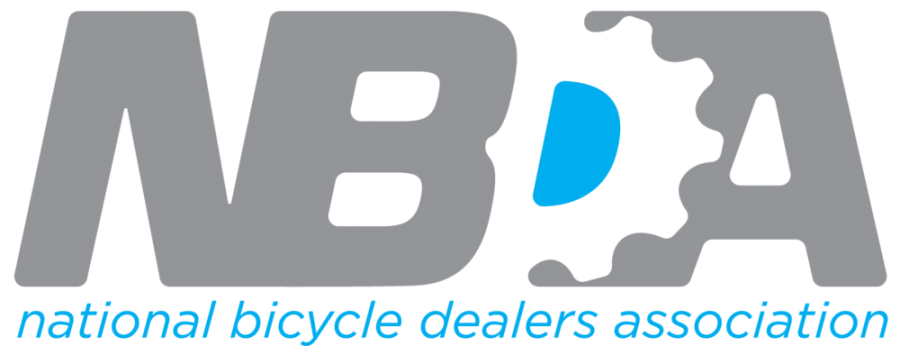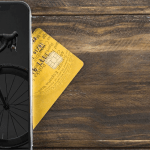Let My People Go Riding: Taking on Bike Tours
Guiding customers is a great way to diversify your business, attract new riders and, in many cases, deepen relationships with regulars
Words by Scott Chapin, w/additional reporting by Peter Koch
As the bicycle retail industry continues to evolve, more and more retailers are looking to differentiate themselves to customers via unique experiences and services—whether that’s selling coffee or beer, offering ride clinics or coaching services, hosting art openings and film screenings or providing mobile service—rather than the more traditional, product-based approach. For several industry-leading shops, offering bicycle tours has been an effective way to generate extra revenue, diversify revenue streams, attract new customers and increase customer loyalty.
Of course, “bicycle tour” might conjure very different images for you, depending on your location and preferred riding style. An urban shop in NYC’s Greenwich Village, for example, can be city tour-focused (food! parks! history! landmarks!), while a Sedona-based shop is much more likely to be guiding pilgrims to local singletrack treasures. Here’s how a diverse set of shops have successfully turned bike tours into a key part of their business strategies:
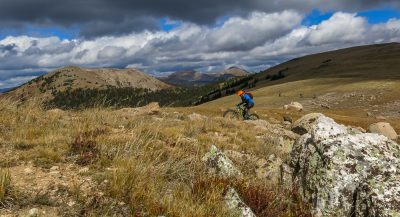
Riders on the Monarch Crest Trail, which draws bike tourists to Salida’s Absolute Bikes. (Flickr/Danny Laroche)
Case Study #1: Mountain/Wilderness Tours
Retailers located near destination trails and large tracts of public land have the opportunity to use their “locals’ knowledge” to help serve visitors. While it’s common for visiting riders to ask these retailers about local trails and how to access them, many would gladly pay a guide to just take them there. Their experience can be greatly enhanced knowing they’re riding the best trails, and that they never have to worry about getting lost.
Shawn Gillis began offering mountain bike tours from Absolute Bikes, his Salida, Colorado-based shop, in 2008. Although these tours only encompass a small percentage of his shop’s gross sales, he feels it’s an important way to diversify his services. His shop offers sales, service and rentals, as well as bicycle shuttles. Most of Absolute’s clientele are visitors to the area who want to ride the area trails (Monarch Crest) as well as the Leadville 100 course. Guides enhance customers’ overall experience with their local knowledge of not only the trails, but also the town and its surrounding mountains.
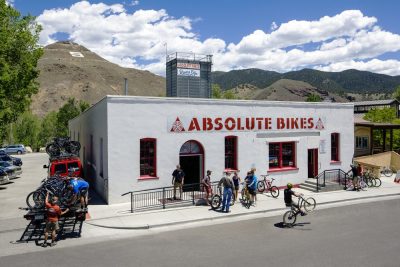 Gillis says that guiding bicycles is quite different from being a raft guide, where everyone is in the same boat at the start and finish. If a group comes in for a tour, he suggests keeping their entire group together for safety reasons, regardless of apparent ability gaps. That requires guides to be keen observers who can assess individuals’ ability levels on the fly, and make course changes, as necessary. He stresses the importance of patience—never rush slower riders—and positive attitude in maintaining a smooth, safe trip that maximizes fun. As a bonus, you might be able to convert that experience into soft good sales (t-shirts, jerseys, socks, etc.), as Absolute does.
Gillis says that guiding bicycles is quite different from being a raft guide, where everyone is in the same boat at the start and finish. If a group comes in for a tour, he suggests keeping their entire group together for safety reasons, regardless of apparent ability gaps. That requires guides to be keen observers who can assess individuals’ ability levels on the fly, and make course changes, as necessary. He stresses the importance of patience—never rush slower riders—and positive attitude in maintaining a smooth, safe trip that maximizes fun. As a bonus, you might be able to convert that experience into soft good sales (t-shirts, jerseys, socks, etc.), as Absolute does.
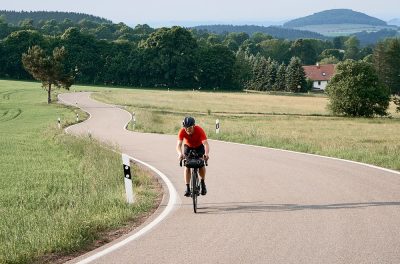
Max Libertine/Unsplash
Case Study #2: Multiday Destination Tours
Perhaps a more common—and, yes, more involved—bicycle touring style is your classic destination tour. Wheel & Sprocket, the Milwaukee, Wisconsin-based chain, started getting involved in tours as far back as the 1980s, with shop staff providing logistical and mechanical support at existing events. In the early days, says Amelia Kegel, Wheel & Sprocket didn’t have the money to host, or even financially support, these events, but over time its role evolved and grew to the point that it was assisting with management. Kegel says that her father, shop founder Chris Kegel, always felt that involvement in bicycle events was their responsibility to the community, and that helped build the shop’s culture and reputation. From those humble beginnings, they’ve since organized many multiday bicycle tours for customers, including ones to Jasper/Banff, Death Valley, Vermont, Northern Wisconsin, and farther afield. The most recent trip, to Jasper, was a “full-service” tour in which shop staff handled all of the flight and hotel bookings, along with planning and executing bicycle travel.
Wheel & Sprocket plans on growing its tour business to provide multiple international options. Kegel says communication is one of the most important aspects of running successful tours; both customers and employees need to understand what to expect. And to ensure a top-notch customer experience, plan carefully ahead of time, of course, but remember to be flexible once you’re rolling, since there are so many variables—rider ability, weather, equipment—that can impact the experience on any given day. Where profit is concerned, the devil, as always, is in the details—know your numbers ahead of time, stick to a budget, and you’ll be satisfied with a healthy profit. Lastly, don’t forget to celebrate the experience with your customers and staff. This is a vacation (of sorts), after all. Most of Wheel & Sprocket’s tour participants are current customers, so these tours provide a more intimate setting for staff to deepen their personal relationships with customers and, it follows, earn their loyalty.

envoltorio/Pixabay
Case Study #3: City Tours
Of all the bike retailers in America, Wheelhouse Detroit has made perhaps the most of showing off its city’s rich heritage on urban bike tours. When she first started offering tours, says owner Kelli Kavanaugh, she was eager to show off a city on the rebound and, in the process, hoped to convert a few locals into regular riders. In those early days, she developed and guided the tours herself, which required a huge investment of her time (and frequently took her time and attention away from everyday shop operations).
After one season, though, she realized she could effectively outsource much of the work by partnering with local nonprofits to develop the tours. For example, the once-a-month Urban Agriculture tour was developed by an organization called Keep Growing Detroit that works with local gardeners and farmers to promote food sovereignty. Keep Growing developed both the route and the content of the tour, which someone from their organization guides. Wheelhouse, in turn, pays the organization for every tour they give. “It’s a win-win,” says Kavanaugh. “They get to showcase what they’re doing and make a little money for the organization, and we’re able to provide a very authentic experience while focusing on the bike part of things,” which includes providing a trained guide and sweeper to keep the group safe, keep everyone together and make on-the-go repairs. It was a breakthrough realization that saved the partners from “reading stuff off the internet to create a tour,” and let them concentrate on their area of expertise.
Now Wheelhouse offers at least 22 different tours more than 70 times a year, ranging from the geographically specific (Hamtramck, Belle Isle, Corktown, Eastern Market) to the more thematic (music heritage, auto heritage, architecture, public art, haunted and the aforementioned urban agriculture) ones and, finally, to the more esoteric (Underground Railroad, cigars in Detroit and Churches of Poletown). They’re kept small—capped at 15 for public tours and 20 for private—ensuring they’re both safe and personal. In some years, those tours have brought in $50,000 or more.
Kavanaugh recognizes that tours could be considered a distraction from Wheelhouse Detroit’s core business. She even, at one point, considered running the businesses separately under two LLCs—one for Rentals and Tours, one for Retail and Service—because “the liability is different, the staffing is totally separate.” Ultimately, though, she sees them as integral to promoting her philosophy that cycling is for everyone. “I think there’s a little bit of attitude around cycling—‘I’m cool because I cycle, I’m really fit because I cycle, I’m smarter than you because I cycle’—that permeates the industry and cyclists,” she says. She tries to combat that image with tours, where virtually anybody can get on a bike, ride a dozen miles, learn about Detroit and have fun. “You don’t have to wear spandex, you don’t have to be riding a fancy bike. And I think that serves as a gateway drug to becoming a regular cyclist.” In other words, the tours are a great way for newbies to gain confidence and learn the rules of the road in a small group.

RoarAdventures.com
Bonus: A Readymade Touring Solution
Another option for bicycle retailers who want to offer their customers destination tours while outsourcing some or all of the logistics is to partner with an organization like Roar Adventures, a division of BikeRoar that’s built a vetted network of existing bike tour operators throughout the world. In addition to the hand-picked tours available on their website, the company is working with bicycle retailers to offer private and bespoke tours.
“It’s exciting to partner with bicycle retailers for bike tours,” says Chika Sakane, BikeRoar and Roar Adventures founder. “We’ve always felt strongly about supporting local bike shops, and as cyclists and adventurers ourselves, it’s a privilege that comes naturally.”
Roar Adventures can help you choose or build the right tour for your group, and even create a professional-looking, co-branded web page for your specific tour to coordinate bookings and keep your customers in the loop on tour travel plans. In many cases, too, shop owners can realize additional benefits, like turning a bike tour into a revenue generator, or having his/her trip paid for via group discounting (which is applied as a credit to the owner).
If You Do It
Offering tours (as an owner-operator) poses additional liability risks for bicycle retailers, so most tend to create a separate legal entity for their tours with separate insurance. In some cases, though, an insurer can add those exposures to an existing policy, with approval. If a shop chooses to work with RoarAdventures, it will need to be listed as “Additional Insured” (both the end tour operator and RoarAdventures).
Scott Chapin is an accomplished mountain bike racer and a bicycle industry risk specialist with Marsh & McLennan Agency.
 The NBDA has been here since 1946, representing and empowering specialty bicycle dealers in the United States through education, communications, research, advocacy, member discount programs, and promotional opportunities. As shops are facing never-before-seen circumstances, these resources offer a lifeline. Together, we will weather this. We at the NBDA will not waver in our commitment to serving our members even during this challenging time—but we need your support.
The NBDA has been here since 1946, representing and empowering specialty bicycle dealers in the United States through education, communications, research, advocacy, member discount programs, and promotional opportunities. As shops are facing never-before-seen circumstances, these resources offer a lifeline. Together, we will weather this. We at the NBDA will not waver in our commitment to serving our members even during this challenging time—but we need your support.
Now is the time to become a member as we join together to make one another stronger. Whether you’re a retailer or an industry partner, your membership in the NBDA is one of the best investments you’ll make this year.
Learn more about the benefits of being a member and join now.
